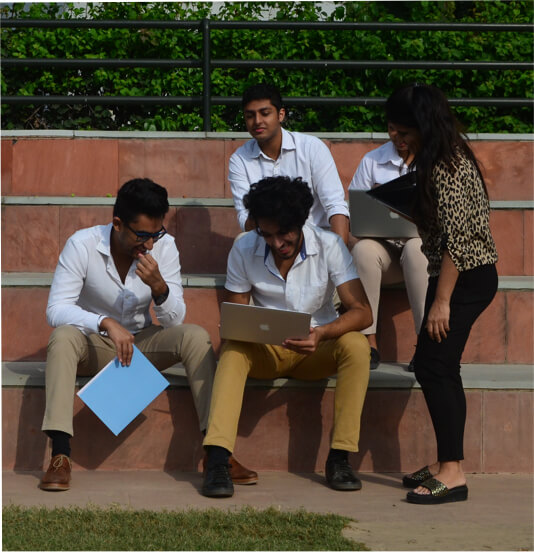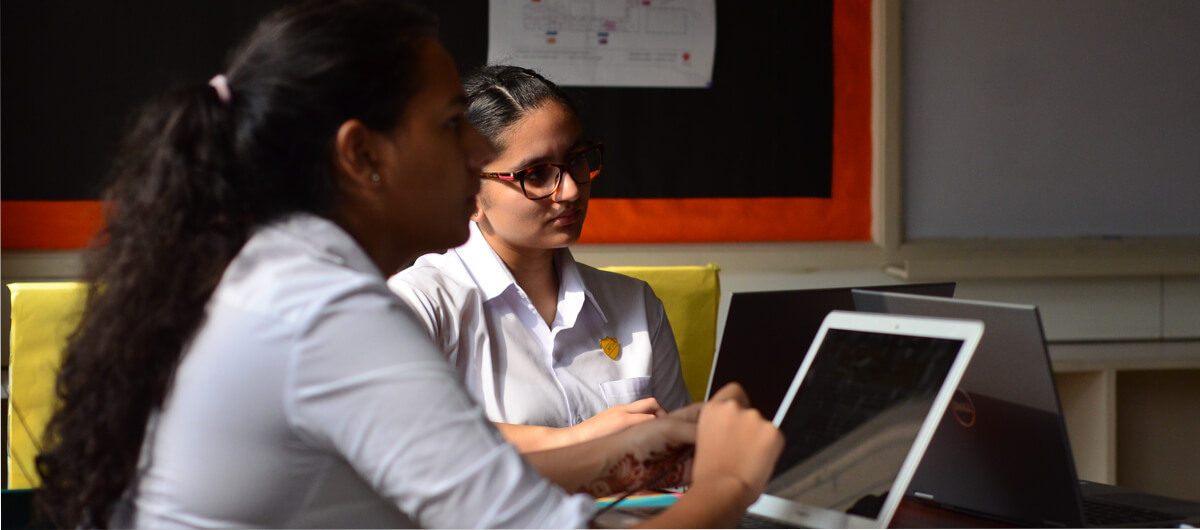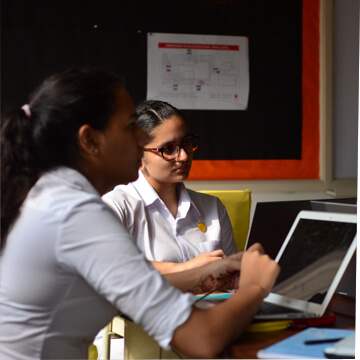IB DP Programme

Why the IB Diploma Programme?
IB is an internationally recognised, rigorous academic programme. The IB increases academic opportunity for school leaving students. It has a balanced and broad curriculum that encourages breadth and depth of learning. It creates knowledgeable, well-rounded individuals.
In IB, a learner’s achievement is more than academic scores. IB’s interdisciplinary teaching and learning promotes local and global awareness college recognition world over for its students.
Who chooses the IB DP?
Students who seek greater academic and extracurricular challenges; those who are inquirers, thinkers and reflective individuals and are willing to stretch their learning boundaries are the students who choose IB DP programmes.
Those children who enjoy the learning journey through discovery and research and are natural collaborators make for good IB DP students. Willing to enhance their critical thinking skills, amongst others and learn by accepting different perspectives are the greatest assets of such students.
IB students are independent learners, willing to be responsible for their learning.
The SFHS IB DP programme experience
What are the teaching and learning strategies that develop the required skills and attitudes?
Approaches to teaching and learning (ATL) are deliberate strategies, skills and attitudes that permeate the IB teaching and learning environment. This supports the IB belief that a large influence on a student’s education is not only what s/he learns but also how learning happens. Approaches to learning is all about —
- Thinking skills
- Communication skills
- Social skills
- Self-management skills
- Research skills
Approaches to teaching:
- is based on inquiry
- focused on conceptual understanding
- developed in local and global contexts
- focused on effective teamwork and collaboration
- differentiated to meet the needs of all learners
- informed by formative and summative assessment
refer to source here

Requirements to earn the Diploma
Candidates must satisfy assessment requirements in 6 subjects and the core. A candidate selects 6 subjects, one from each of the 6 groups with at least 3 and not more than 4 subjects at higher level and the others at standard level. In addition, candidates for the IB Diploma must complete the requirements of —
- The Core — that includes 3 components
- TOK — (Theory of Knowledge)
- CAS — (Creativity Activity Service)
- Extended Essay — in a subject available for the relevant exam session
Award of the IB Diploma
All assessment components for each of the 6 subjects and the additional Diploma requirements must be completed in order to qualify for the award of the IB Diploma. The IB Diploma is awarded provided all the following requirements have been met — CAS requirements
- The candidate’s total points are 24 or more.
- There is no “N” awarded for theory of knowledge, the extended essay or for a contributing subject.
- There is no grade E awarded for theory of knowledge and/or the extended essay.
- There is no grade 1 awarded in a subject/level.
- There are no more than two grade 2s awarded (HL or SL).
- There are no more than three grade 3s or below awarded (HL or SL).
- The candidate has gained 12 points or more on HL subjects (for candidates who register for four HL subjects, the three highest grades count).
- The candidate has gained 9 points or more on SL subjects (candidates who register for two SL subjects
- Must gain at least 5 points at SL).
- There is no grade 1 awarded in a subject/level.
- The candidate has not received a penalty for academic misconduct from the Final Award Committee

